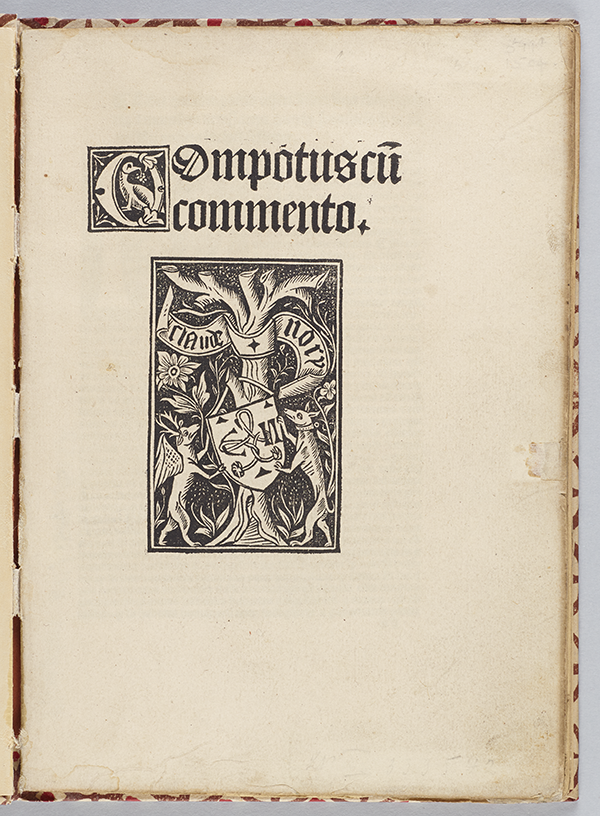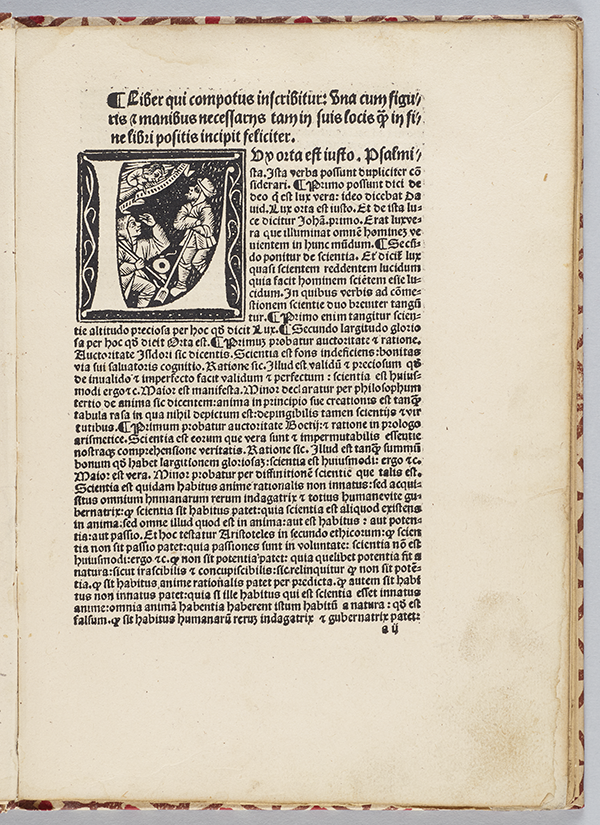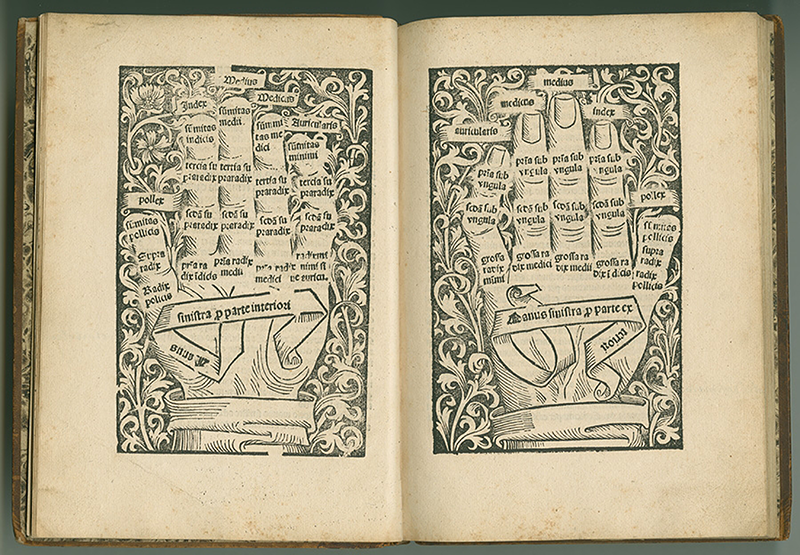- About MAA
- Membership
- MAA Publications
- Periodicals
- Blogs
- MAA Book Series
- MAA Press (an imprint of the AMS)
- MAA Notes
- MAA Reviews
- Mathematical Communication
- Information for Libraries
- Author Resources
- Advertise with MAA
- Meetings
- Competitions
- Programs
- Communities
- MAA Sections
- SIGMAA
- MAA Connect
- Students
- MAA Awards
- Awards Booklets
- Writing Awards
- Teaching Awards
- Service Awards
- Research Awards
- Lecture Awards
- Putnam Competition Individual and Team Winners
- D. E. Shaw Group AMC 8 Awards & Certificates
- Maryam Mirzakhani AMC 10 A Awards & Certificates
- Two Sigma AMC 10 B Awards & Certificates
- Jane Street AMC 12 A Awards & Certificates
- Akamai AMC 12 B Awards & Certificates
- High School Teachers
- News
You are here
Mathematical Treasure: 13th-Century Computus of Anianus
Computus cum commento was published in 1488, together with Johannes Sacrobosco’s (ca. 1195-1256) De algorithmus, in one volume. For images of a manuscript copy of Sacrobosco's Algorismus, or Tractatus de arte numerandi, see Mathematical Treasure: Sacrobosco's Algorismus.
The title page of the Computus cum commento is shown here:

While the author of this computus is given as one “Anianus,” the exact identity of this individual remains in question. D. E. Smith identified him as a 13th century French monk and several sources have accepted this conjecture and placed him in the period ca. 1250-1300. Since a computus was a Church mathematical manual devoted to the determination of the date of Easter, the association with a monk is plausible.
The first page of the text contains an illustration of peasants looking to heaven questioningly. An angel appears to be offering them information.

In the instructions, Anianus employed hands as references.

The images above are provided courtesy of Columbia University Libraries.
Frank J. Swetz (The Pennsylvania State University), "Mathematical Treasure: 13th-Century Computus of Anianus," Convergence (June 2018)




